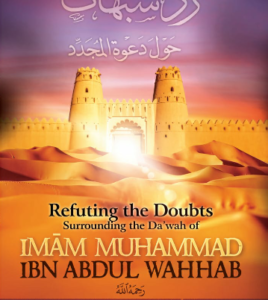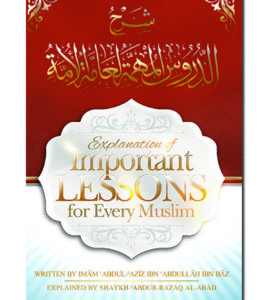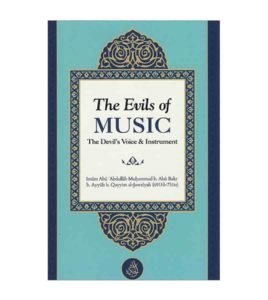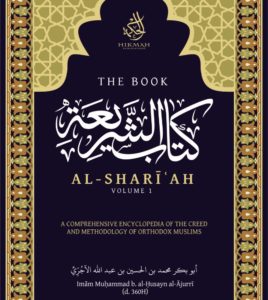Understanding Your Shahādah [Declaration of Faith]
By al-‘Allammah ash-Shaikh Zaid ibn Hādī, may Allāh have mercy upon him
The testimony that “none has the right to be worshipped except Allāh” means there is no true object (deserving) of worship except Allāh. It is not proper to explain it as “there is no object of worship except Allāh”, since the objects of worship on the earth are many. However, “there is no true object (deserving) of worship except Allāh” is the correct explanation and clarification of its meaning.
It is determined from examination of the texts of the Book & the Sunnah that “lā ilāha ill-Allāh” has pillars and conditions; it has virtues and it has rights. So he who perfects these is from its people, in the complete sense of the word.
Its pillars are 2: Negation & Affirmation.
- a) The Negation is derived from your statement “lā ilāha” (none has the right to be worshipped…)
- b) The Affirmation is from your statement “ill-Allāh” (…except Allāh).
The scholars have mentioned it has conditions. Some of the them mention seven and some mention eight. They are:
1— Knowledge (العلم)
2— Certainty (اليقين)
3— Acceptance (القبول)
4— Submission/Compliance (الإنقياد)
5— Sincerity (الإخلاص)
6— Truthfulness (الصدق)
7— Love (الحب)
These are considered to be the conditions of lā ilāha ill-Allāh. The 8th is: Disbelief in that which is worshipped besides Allāh’s. Every condition has evidence from the Book and the Sunnah.
Its rights are legislative responsibility, from declaring the halal to be halal and considering the harām to be harām, and establishing the obligations and staying far away from the prohibitions. All of that and its likes are from the rights of lā ilāha ill-Allāh.
As for the conditions of the testimony that Muhammad is the Messenger of Allāh, they are six:
1— Acknowledging his messengership outwardly and inwardly.
2— Pronouncing the shahādah.
3— Having excellence in following him.
4— Affirming everything he informed us of.
5— Implementing his commands and avoiding his prohibitions.
6— Giving preference to his statement over the statement of everyone else from the creation.
These two testimonies are one pillar from the (five) pillars of Islam; today, like yesterday, every person is in need of actualizing and understanding it, and acting in accordance with its requirements.
For more read The Explanation of “The Book of Knowledge” from Sahīh al-Bukharī translated by Abū Mūsa Raha ibn Donald Batts ©2018 C.E./1439H Dar al-Medad, Cairo, Egypt.
Titles related to the topic:
📘 La Ilāha Illa Allah: Its Meaning, Its Conditions, Its Nullifiers & Its Virtues by Shaikh Muhammad ibn Sa’eed Raslān
📘Laa Ilaaha Ill-Allaah: Its Meaning, Pillars, Conditions by Shaikh Muhammad ibn Abdul-Wahhāb al-Wasaabi
📘 The Statement of Tawhīd: Lā Ilāha Illa-Allāh Its Virtues, Significance, Conditions & Nullifiers by Shaikh Abdur-Razzaaq bin Abdul-Muhsin al-‘Abbaad al-Badr
📘 Explanation of the Conditions of the Testimony of Faith & Its Proofs by Shaikh Muhammad Amān al-Jāmi
📘 Understanding Your Testimony of Faith: Seven Essential Points of Understanding by Imām Muhammad ibn Abdul-Wahhāb and explained by Shaikh Muhammad Amān al-Jāmi
Trackbacks and pingbacks
-
clindamycin 300
[...] clindamycin 300[...] clindamycin 300
 (267) 428-1723
(267) 428-1723








Leave a Reply